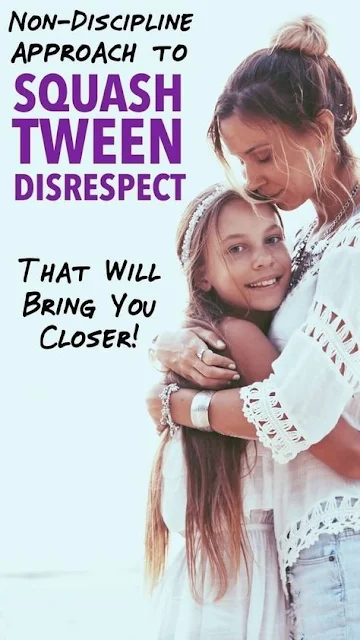I could feel heat creeping up the back of my neck. I took a deep breath to calm myself.
You know those days when your tween is trying to push your buttons and get a reaction? Well, it was one of those days for me.
I’m not a yeller, and I’m not an angry person. But I’m human, and I do get upset with my kids sometimes, especially when it seems like that’s what they’re trying to accomplish.
I can’t remember exactly what my oldest daughter had said, but here we were in her room. She was sitting on the bed and I was standing in the doorway, explaining why what she had done was not ok.
And then she rolled her eyes.
In that instant, my first instinct was to feel anger. That’s a natural reaction when you’re shown disrespect by another person, and that’s ok. But the key is not to let anger cloud our judgement and get in the way of finding a positive solution.
I’m sure my daughter expected me to get upset with the eye rolls. She might have even thrown some exaggerated sighs in for extra effect.
But instead giving in to anger and taking her actions at face value, I thought to myself what must be bothering her to cause her to act out in this way?
Figuring out the answer to that question is easier than you might think. Ask.
Ask your tween why they are upset.
Be mindful not say something that will appear confrontational, like: “Hey, what’s your problem?” That will accomplish the opposite of what we want, and your tween will likely get defensive or simply not talk.
I have found it much more effective to show empathy with my question: “I can see that something must be worrying you for you to act in a way that’s out of character. Would you like to tell me what’s upset you?”
When you make it known that you are concerned about their feelings (even when they’ve been “bad”), you’ll be much more likely to get a sincere answer.
And then listen.
It turns out that my oldest daughter had been worrying that her baby sister was getting more attention, and that perhaps we all loved her younger sister more. Of course that couldn’t be farther from the truth, but this is a universal fear among siblings, especially when there is a new baby.
In this simple exchange, before we had even reached a resolution, I could see my daughter’s “attitude” vanish and I could feel my own anger melt away. With one simple question and answer, we had both pushed aside the emotions that were blocking the real issue.
Now
we were in a place where we could talk about what was on my daughter’s
mind and she could get the reassurance that was really all she had
wanted in the first place.
It’s frustrating when your tween acts out or is disrespectful. However, we have to remember that even though they are testing out grown-up emotions and actions, they are still children at heart. Our children don’t always know the most effective way to get the help that they are looking for, so it is on us as the adults to guide them.
The next time you find yourself facing off with your tween, remember that they are trying to get your attention in the only way they know how. Show them a better way.
